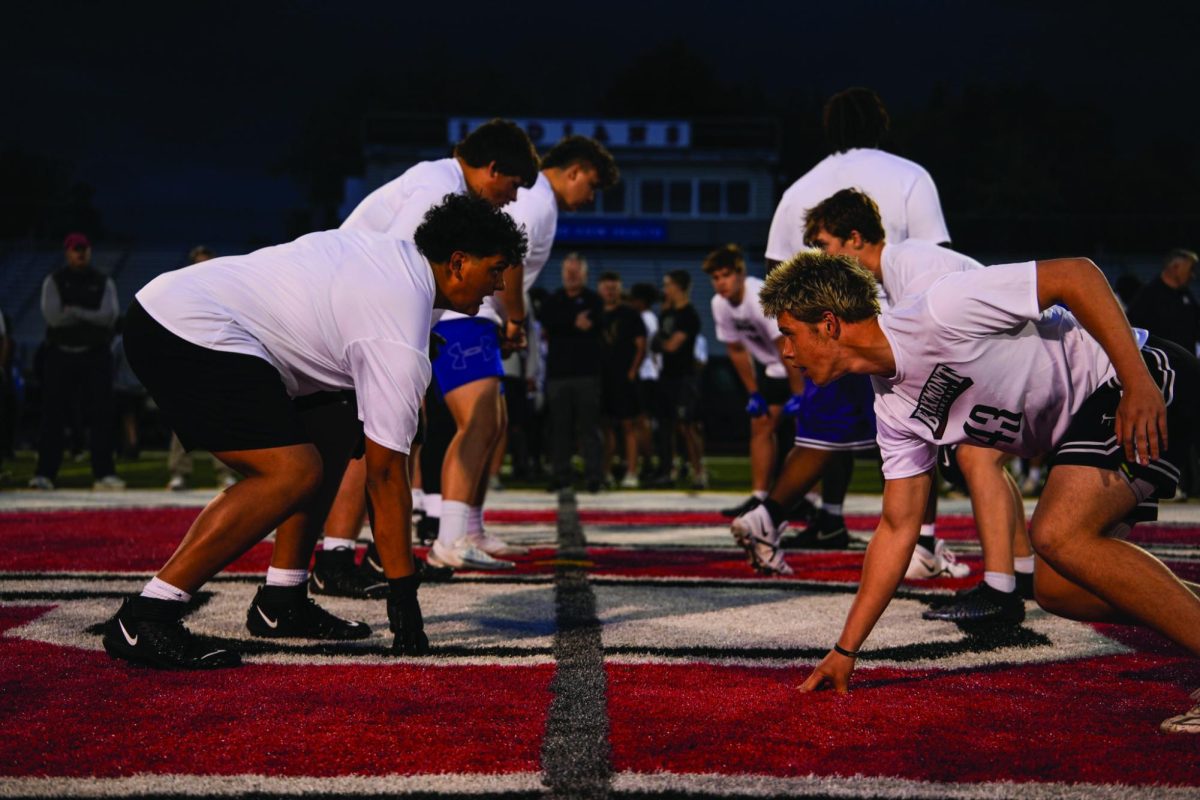Even after proving themselves to be the best of the best by getting drafted, NFL rookies still have a lot of work to do.
After being drafted, they have to prove themselves worthy of a coveted roster spot.
According to sports writer and analyst Reuben Frank, there are some significant differences between the NFL and college football that these rookies have to deal with.
Frank says that one of the major differences between the NFL and college football is, predictably, the talent level.
“Even Alabama, Georgia, whoever, there’s like one guy or two guys, and you’re like, all right, he’s just not as good as the rest,” Frank said. “In the NFL, that’s just not the case. Even teams that have bad records, they are really good.”
According to Frank, rookies have to adjust to this, as the jump in talent is very noticeable.
Eagles announcer and Hall of Famer Merrill Reese said that there are both physical and mental challenges that rookies have to face as they transition to the NFL.
Reese said that NFL players have to be significantly more prepared mentally than they were in college.
According to Reese, a player has to be intimately familiar with every coverage, every play and every formation they have to use.
On the other hand, Reese also points out the physical challenges rookies will have to face.
“Physically, you are talking about players who are bigger, faster and stronger. You are getting hit,” Reese said. “I mean, the average NFL player, on Monday morning after a Sunday game, feels as if he were in a car accident on the expressway the day before.”
On the other hand, Frank makes it clear that rookies have every opportunity to put in the work to elevate themselves at this level.
“It’s amazing how many NFL players talk about how much more time they have because they are off classes,” Frank said. “Even big-time college football players have to go to class and they have homework, term papers and projects.”
Now that football has become their job and their way to support their families, the rules and regulations set on things like time in the facility are greatly reduced.
According to the NCAA rules and regulations, college football programs are unable to hold practice for longer than four hours a day, and require at least one day off per week during the season, and two during the off season.
While the NFL also limits time on the field at practice to three and a half hours, the cap for time spent in the facility per day is 13 hours during the season.
All of these extra hours allow players to study much more film and prepare themselves even more for upcoming games or matchups.
Frank also stresses the amount of off-field preparation that goes into a typical NFL week.
He says an example of this is “walk-throughs,” which are short, padless practices that are more focused on learning and establishing the plays.
He also says that film study is a major part of preparation, and takes up several hours a day during the week.
According to Frank, players spend hours and hours studying film. Frank also says that new advances in technology have made film study easier.
“Basically all the film study now is [on] ipads,” Frank said. “Players can take them home and study there.”
These advances in technology have allowed players to study more film, and prepare themselves more for upcoming games, players or situations.
According to Reese, rookies also have to have the right mindset, and find good veterans to model their game and work ethic after.
“I think the NFL coaches, not that they’re not authoritative, but these are grown men,” Frank said, “and you have got to treat them like adults to have their respect.”
The professional nature of the NFL forces rookies to adjust to this new leadership culture.
Eagles analysts weigh in on rookie struggles
In order to maximize their opportunity, NFL rookies must adapt to the professional level. These adaptations can be difficult to overcome, and often weed out those that are not cut out for professional football.
The inside scoop…Explaining his role as an Eagles broadcaster, NFL Hall of Famer Merrill Reese describes his daily and gameday routines. Reese has been the Eagle’s radio announcer since 1977.
0
More to Discover
About the Contributor

Jacob Godshall, Editor-In-Chief




